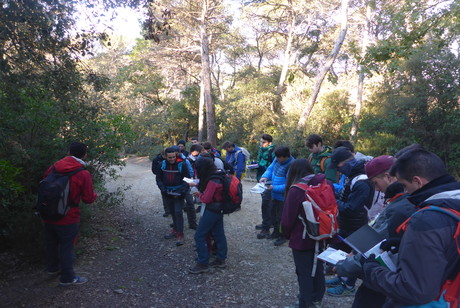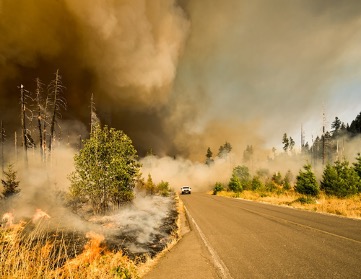In August 2020, while the world continued its fight against the COVID-19 pandemic,
California had another major problem to deal with: the beginning of the largest wildfire in
United States history. By November 12 th , when the record-breaking fire, named August
Complex, was finally extinguished, over one million acres of forest and land had been
burnt to the ground. The disastrous fire incinerated an area roughly the size of the
islands of Mallorca, Menorca, and Ibiza combined. It required the efforts of more than
2,900 firefighters and emergency personnel, and cost the state of California and its
taxpayers approximately 320 million EUR.
California is in its third year of a drought which began in 2019. When land doesn’t
receive much moisture in the autumn and winter months, more vegetation will dry out in
the summer, creating the perfect environment for fires to break out. There are often
small fires burning across California that might not be catastrophic in isolation.
However, as the fires find more dry vegetation to consume, or run into strong, dry
winds, they will spread and can sometimes merge and intensify. This is what caused the
large-scale destruction of the August Complex fire which originated as 38 separate fires,
most ignited by lightning strikes.
The immediate impact of wildfires is everything they destroy in their path: beautiful
forests are reduced to ashes, animals are killed and displaced, and homes and property
are gone in minutes. Besides the physical damages, another destructive byproduct of
wildfires is the amount of carbon dioxide released into the atmosphere.
In 2020, the year of the August Complex fire, carbon dioxide produced by wildfires
almost erased 20 years of hard work by Californians to reduce their carbon emissions.
Wildfires were the second largest source of greenhouse gas emissions in California that
year, according to a study published in the Environmental Pollution Journal in October
2022. Within the smoke and fumes, there are also particles from burning cars, buildings,
and plastic that contribute to higher air pollution levels dangerous to human health.
This past summer in Spain, wildfires raged in Andalusia, Extremadura, Castille y
Leon, Aragon, and Zaragoza, evacuating thousands of people from their homes and
scorching thousands of hectares of forests. Forests play a crucial role in slowing down
the effects of climate change. Without them to absorb greenhouse gases, global
temperature will continue to increase, leading to more extreme weather events such as
drought, which will in turn create more wildfires.
By Jing Gao









Comentaris recents